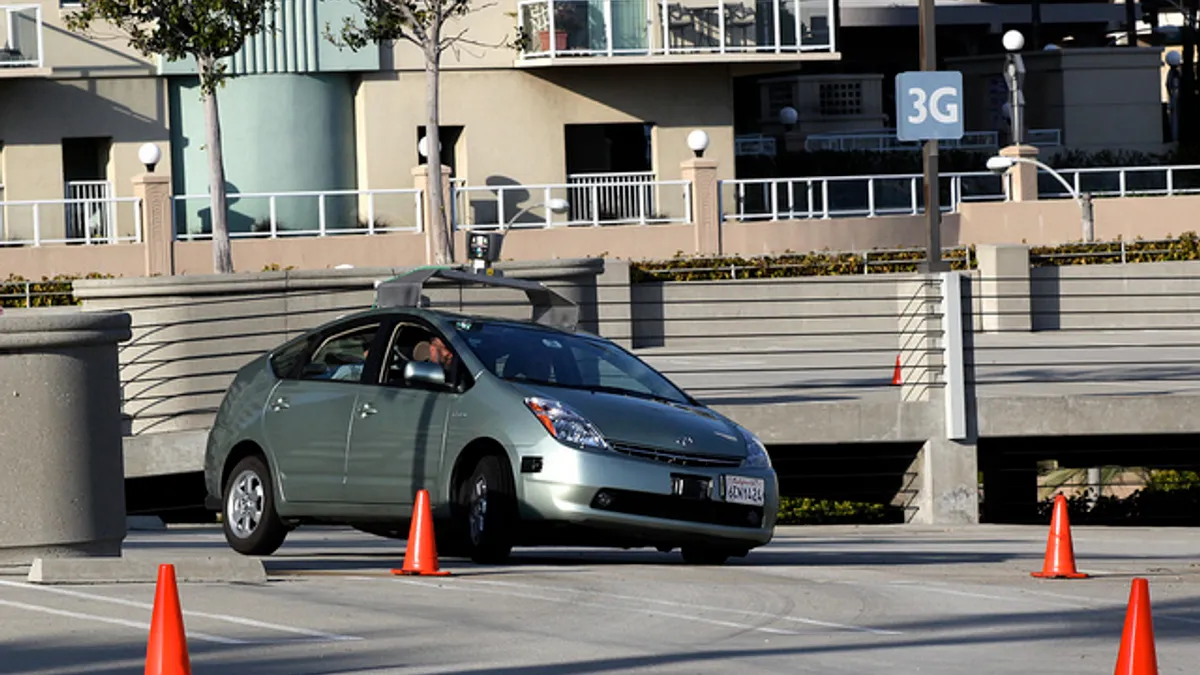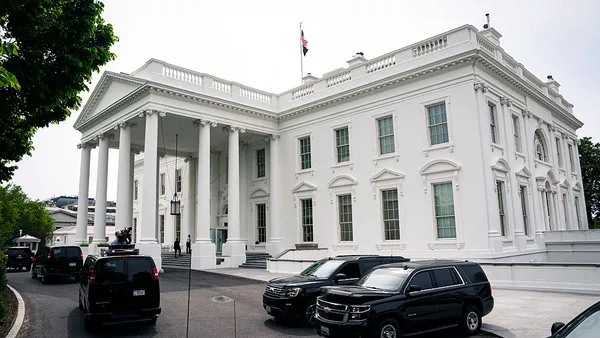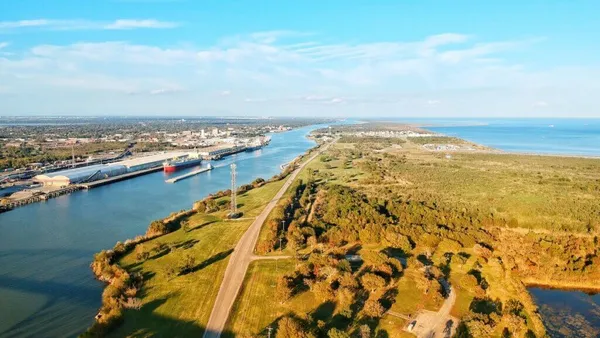Dive Brief:
-
The Florida Turnpike broke ground earlier this month on a new test track where it will experiment with high-speed toll technology as well as systems for vehicle-to-infrastructure and vehicle-to-vehicle communications, according to FleetOwner.
-
The 400-acre SunTrax site, in Auburndale, FL, will test toll equipment and interoperable tolling systems, as well as smartphone-based payment methods. Other technologies to be tested include high-speed connected platooning trucks, moveable barrier systems and machine vision and materials testing for new pavement types, lane markings and signage.
-
Construction on the site's oval track is expected to be complete in spring 2019 with the first phase of an autonomous vehicle test bed opening at that time or shortly thereafter.
Dive Insight:
The nation's roads — and the vehicles on them — are getting smarter as states and municipalities look for ways to gather data from infrastructure. In Georgia, officials are testing smart-highway and vehicle technology, including upgrading a 16-mile stretch of Interstate 85 with road sensors, solar pavement and electronic and autonomous vehicle technologies. The state's Department of Transportation and its partners say they will use those features to test solutions for creating a "zero-carbon, zero-death, zero-waste, zero-impact" roadway.
Meanwhile, the first phase of a connected and automated vehicle (CAV) testing facility, the nonprofit American Center for Mobility at Willow Run, is set to be constructed near Detroit. The site will be used for developing, testing and validating CAV technologies. It is one of 10 U.S. sites designated by the U.S. Department of Transportation as official testing ground for such technologies.
Rhode Island recently issued a request for information for CAV companies to share details about potential partnerships, safety and security initiatives, weather conditions and training. Ohio, too, is looking at smart roads. The state is outfitting a 35-mile segment of Interstate 33 with sensors to gather traffic and weather data, as well as autonomous vehicle technology. The goal is to provide more up-to-date reporting on road conditions.
As research around CAV technology builds, more states are likely to invest in it. However, without a clear federal mandate on autonomous vehicles (though the topic is being considered) and with efforts among private entities to progress the technology independently, states are left to set their own guidelines on how to regulate and invest in CAV.
The National League of Cities issued a guide earlier this year for state and local leaders. In it, the nonprofit encourages them to begin planning infrastructure around CAV technology now so they will be prepared for when the technology is ready for broader adoption.













